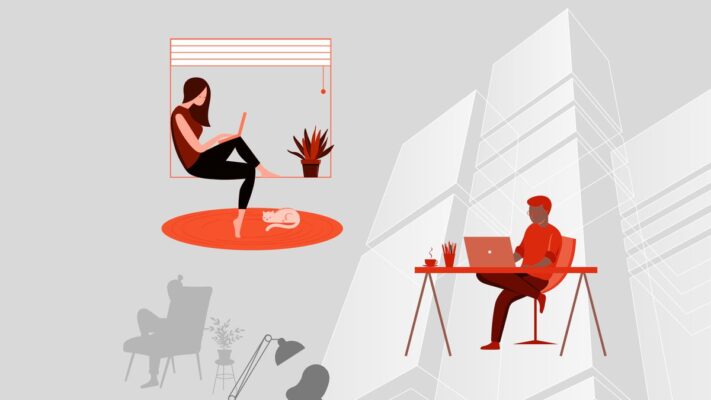
Who doesn’t want to work in their comfort clothes, sip coffee from their favourite mug, and take breaks to relax in a library or a cosy cafe? Before the COVID-19 pandemic, it was a dream and considered a luxury option for employees, but today, it has become a global practice. While it initially appeared as a comfortable way of working, as it offers flexibility and freedom, a closer look reveals the dark aspects that often loiter beneath the surface.
Antisocial Behavior
By nature, most humans are social animals, of course, except for a few antisocials. One of the most significant drawbacks of working remotely is the isolation it can impose on individuals. Working in solitude for extended periods can lead to feelings of loneliness and disconnection. Without the fellowship of colleagues or impromptu chats, employees may begin to feel cut off from the social fabric of the workplace, leading to bad mental health, depression and anxiety.
The Never-ending Day
Work-life balance is a key to living a good life as it offers you the freedom to decorate work hours and personal time. When you work from home or somewhere outside the office space, the boundary between work and personal life becomes blurred, leading to a relentless workday that seems to never end. Remote workers often find it challenging to unplug, leading to burnout. The expectation of being available around the clock can make it challenging to disconnect and recharge.
Lack of Structure and Tech Fatigue
Remote work offers flexibility, but it definitely lacks the structure of a traditional office, which can be a double-edged sword. Without a clear routine, some individuals struggle with time management, productivity, and accountability. Screen time plays a major role while you work remotely, leading to health issues, including eye strain, headaches, and poor posture. Moreover, excessive screen time can also contribute to feelings of fatigue and burnout.

Security Concerns: The Vulnerable Workspace
Remote work introduces a slew of security concerns for both employees and employers. Cybersecurity threats have increased as remote workers connect to corporate networks from potentially unsecured locations. Personal devices used for work can become risky openings for data breaches, putting sensitive information at risk.
Loss of Creativity
The casual interactions and spontaneous conversations that occur in a physical office often lead to creative breakthroughs and innovative ideas. Remote work comes with a structure and digital communication tools, which can stifle serendipity and put a limit on opportunities for collaboration and creativity.
Remote work is undoubtedly a transformative force that has reshaped the way we work and live. However, as we bask in the glow of its benefits, it’s crucial to acknowledge the shadows it casts. To maximise the benefits of remote work while mitigating its negative consequences, individuals and employers must remain proactive in addressing these issues. Only then can we hope to create a remote work environment that truly fosters well-being, productivity, and equality for all.

